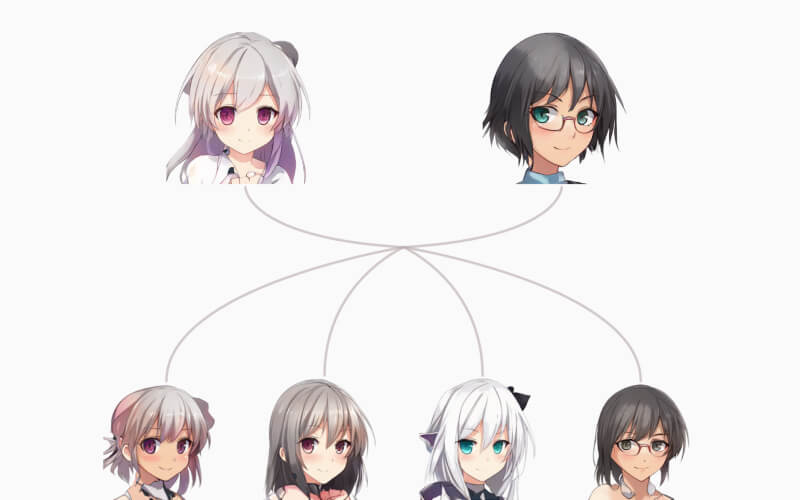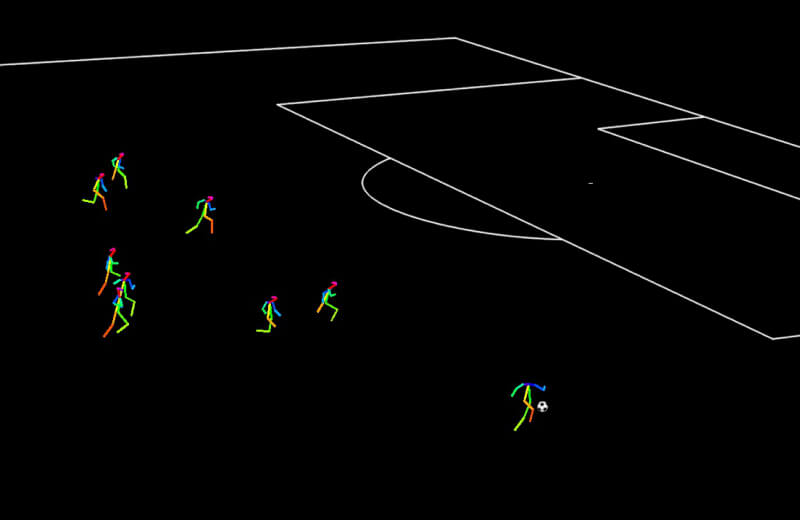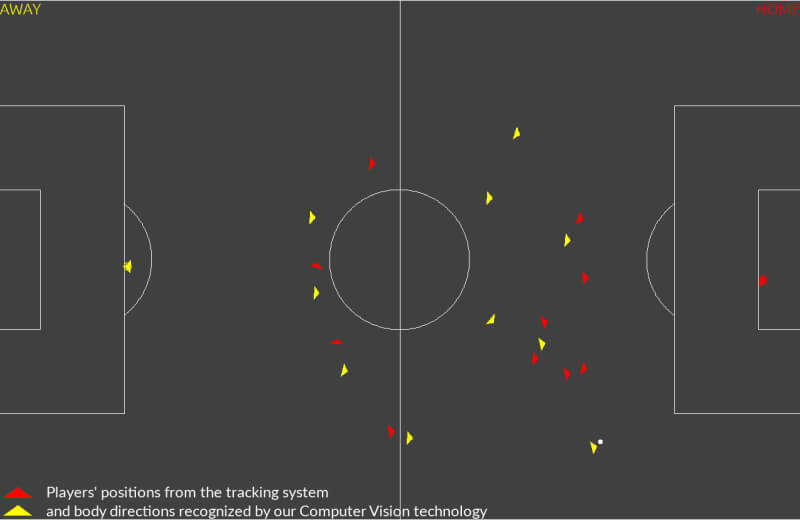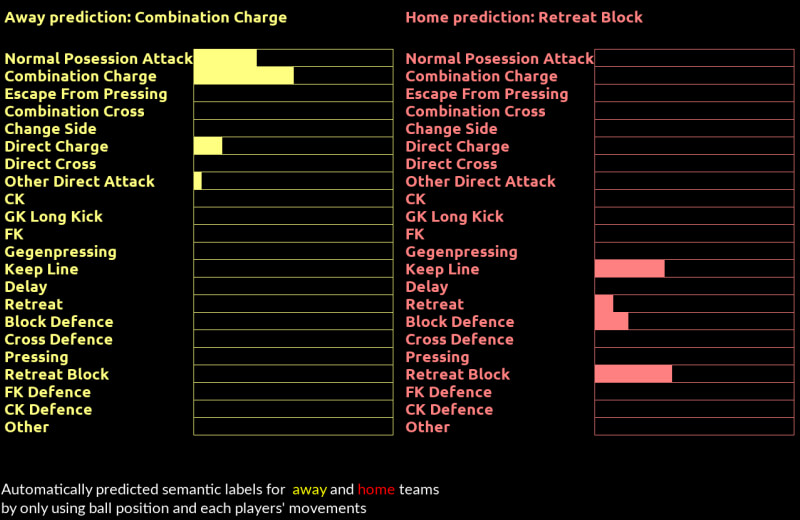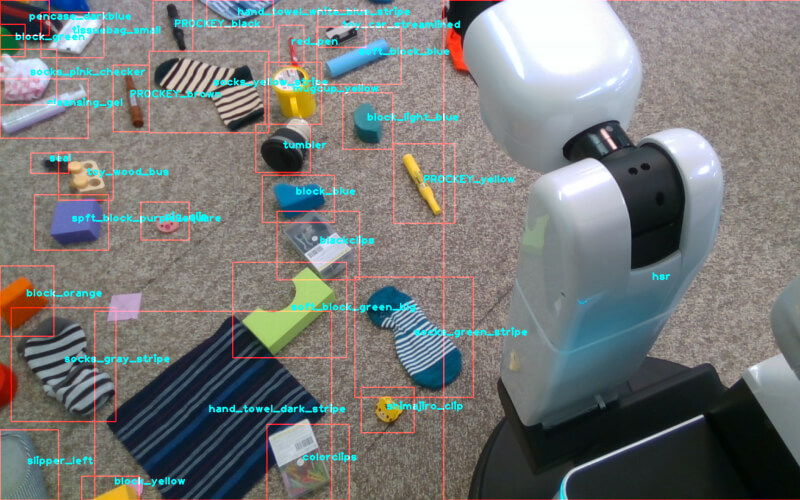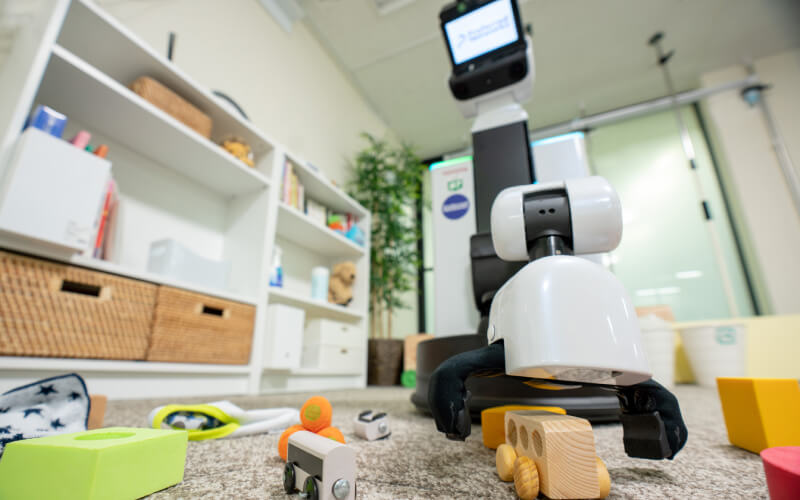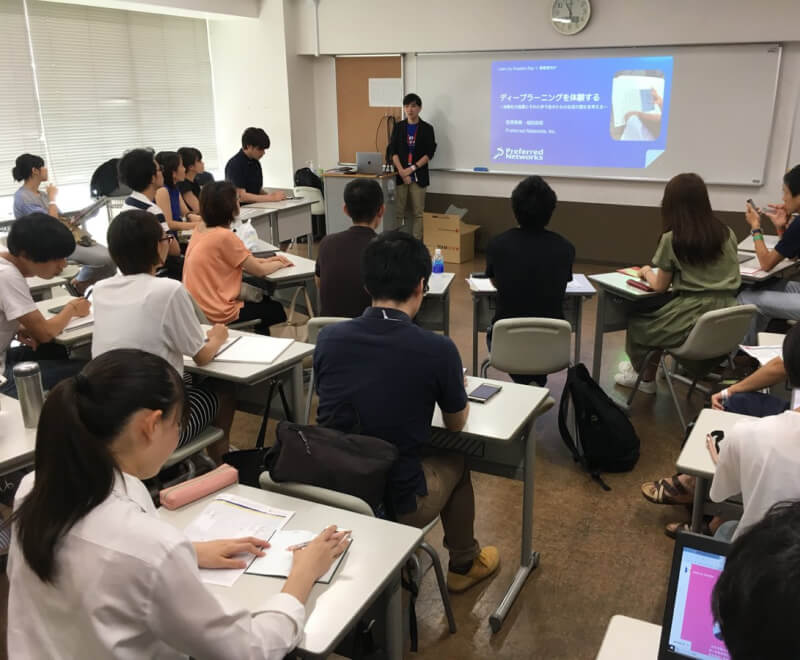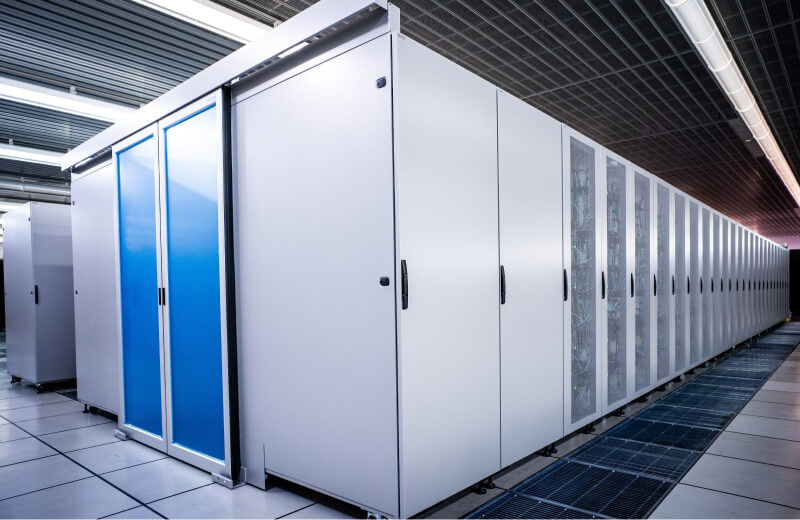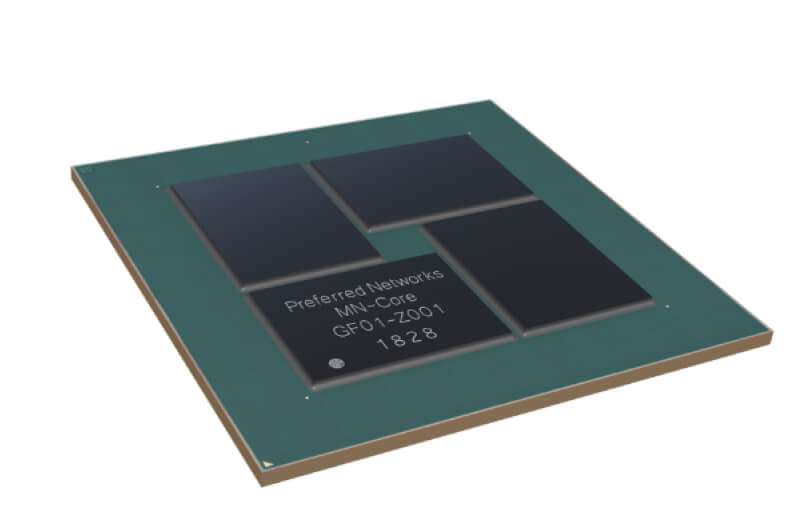Deep Learning Perspective
Deep learning is a revolutionary technology in computing. Preferred Networks (PFN) is spearheading new applications of deep learning in a number of broad domains. This white paper discusses why DL is revolutionary, shows several innovative applications that are made possible only by the use of deep learning, and explains why PFN is positioned as one of the leading companies driving this transition.
Deep Learning: A Quantum-Leap in Computing
Deep learning is set to revolutionize modern computing. In traditional computing, step-by-step instructions have to be clearly specified by human programmers. In deep learning, you can “train” a deep neural network by giving input-output examples. This means that DL can be applied to ill-defined problems, such as image recognition and cancer diagnosis, where no concrete specifications (i.e., precise mathematical relationship between the input and output) can be given, and thus, unsolvable by traditional computing with manual programming.
This is arguably the largest paradigm shift in computing since digital computers were invented in the 1940’s. Now, we have broad opportunities to apply deep learning in many areas, including robotics, autonomous driving, cancer diagnostics, pharmaceuticals, and sports analytics. PFN is strategically partnering with leading companies in these fields to apply deep learning technologies to create new value.
Cancer Diagnosis
PFN is working with the National Cancer Center to diagnose cancer by analyzing exRNA in blood. Typically, RNAs stay within cells but some fragments move out of the cell. These RNA fragments are called exRNA. It is believed that by analyzing the expressions of these exRNA in blood, we can diagnose various kinds of cancer.
There are more than 4,000 different types of exRNA, and scientists have been searching for a small number of predominant types that are indicative of a particular type of cancer. Our team at PFN applied deep learning to this problem. We took all the 4,000+ types of exRNA into account and by analyzing the whole pattern of these expressions, achieved an order-of-magnitude higher accuracy of cancer diagnosis.
Entertainment
Deep learning can also revolutionize the entertainment industry. PFN’s technology Crypko uses state-of-the-art generative models, a branch of techniques in deep learning, to generate a potentially infinite set of unique, high quality characters not contained in the training data. This avoids infringing on the copyright of characters in the training data set. Furthermore, it can fuse several characters into new characters, inheriting their distinctive features.
Sports Analytics
Popular professional sports such as baseball and football generate large volumes of data. Data analytics has been extensively applied to analyze this data to help make stronger teams. In team sports such as football, however, quantifying the contributions of off-the-ball players has been a technical challenge. Sports Analytics Lab. (STL), a subsidiary of Data Stadium, Inc., the largest sports data provider in Japan, partnered with PFN to apply deep learning to football analytics. The technology will be made available as a beta release from STL.
Oil Refinery Optimization
PFN is working with JXTG Nippon Oil & Energy Corporation on a joint research project regarding optimization and automation of oil refineries. An oil refinery is a very complex system consisting of hundreds of processes and thousands of sensors and actuators. Because of its massive production scale of petrochemical products, an improvement of a fraction of a percent of productivity delivers significant cost reductions. By leveraging PFN’s deep learning technology, the joint venture aims to automatically control and optimize large and complex plant equipment for more efficient use of energy resources.
Robotics
In Oct. 2018 at the CEATEC trade show, PFN demonstrated a new robot system using HSRs (Human Support Robots) developed by Toyota Motor Corporation and showcased their ability to keep a cluttered room neat and tidy. This had been difficult to achieve using conventional technologies based on object recognition and robot control. The deep learning-based robots can recognize various scattered household items like clothes, toys, and stationery, grasp and place them in their designated locations. In the demonstration, PFN also showed that these tidying-up robots can be controlled intuitively through verbal and gestural instructions.
Automatic Tidying-up Robot demonstrated at CEATEC Japan 2018. The robot recognizes objects scattered on the floor by deep learning-based image recognition
Education
Deep learning opens the door to a new type of programming — inductive programming — which requires new materials to teach students. PFN is working with the Ministry of Education (MEXT) of Japan to create a curriculum and associated tools required for this purpose.
“Martian character recognizer” and its use in primary school education. Newly invented “Martian digits” are fed into deep learning and students can try handwritten digits on a tablet
So far, we have discussed innovative uses of deep learning in various domains. We believe that they are only the beginning and there are many more opportunities in front of us. PFN is determined to capture these opportunities by working with leading industry partners.
Next, we will examine the implications of deep learning to computing platforms.
PFN’s Computing Environment
Deep learning is such a significantly different computing paradigm that conventional computing infrastructure is inefficient to run the training and inference of deep learning. That is why at PFN, we invest heavily in our computing environment for deep learning, focussing on the entire stack from software to hardware. PFN is one of a few companies worldwide that have full-stack deep learning capabilities.
Chainer™: An Extremely Flexible Deep Learning Framework
Chainer is an open source software framework for deep learning. It was originally developed in May 2015 to accelerate internal R&D activities within PFN with the emphasis on flexibility. Deep learning is a hot research field and new types of neural networks are proposed almost every week. Chainer’s uniqueness is in its dynamic “define-by-run” nature of network creation — it can build a neural network on-the-fly as it is processing input data. With this flexibility, Chainer allows us to test new ideas quickly, even when the network architecture is uncommon. Recently, the define-by-run feature has been widely adopted by other major frameworks, such as Google’s TensorFlow and Facebook’s PyTorch.
Chainer is designed as a natural extension of the programming language Python, a preferred platform of many data scientists, with seamless CUDA integration, the API for NVIDIA GPUs, for efficient computation. Thus, anyone who is familiar with Python can quickly and easily start building deep learning applications with their existing skills and datasets and at the same time enjoy the high performance of the latest GPUs. Today, Chainer is supported by every major platform, including NVIDIA, Intel, AWS, and OpenPower.
Optuna™: Automation for Hyper-parameter Tuning
In deep learning, it is essential to tune hyperparameters since they control how an algorithm behaves. The precision of a model largely depends on tuning a large number of hyperparameters, including training iterations, neural network layers and channels, learning rate, batch size, and so on. Optuna, an open source technology developed at PFN, automates this trial-and-error process of optimizing the hyperparameters. It automatically finds optimal hyperparameter values that enable the algorithm to give excellent performance. Optuna can be used not only with the Chainer™ open-source deep learning framework for hyper-parameter tuning, but also for any black-box optimization problems.
Scalable Deep Learning Infrastructure
As deep neural networks become larger and more complex, deep learning computation becomes harder to be carried out in a single GPU. Thus, deep learning infrastructure must be scalable. As of mid 2019, PFN owns and operates three sets of supercomputers, totalling 2,560 GPU’s with the aggregated performance of 200 peta flops. In addition, PFN is developing a deep learning accelerator chip that is scheduled to be deployed in 2020, which will significantly improve the computation performance-power ratio.
PFN’s Organizational Capability
PFN is a young company but already has a successful track record. We have strategic investors such as Toyota, Fanuc, and NTT, and we have received global recognitions such as Financial Times 2017 ArcelorMittal Boldness in Business Awards – Technology Award and Forbes Japan’s CEO of the Year 2016.
Our mission is to “Bring the latest technologies to our customers faster than anybody else.” Our engineers are always watching the latest developments in computer science in general and deep learning in particular through academic publications, research communities, GitHub repositories, and so on, constantly identifying new ideas, implementing them quickly (thanks to the flexibility of Chainer), and incorporating them into our offerings when appropriate. This is made possible due to our engineers having both research and engineering mindsets, in addition to extensive domain expertise. To keep our organization most effective, we defined the following four value statements as our company values:
- Motivation Driven
- Learn or Die
- Proud but Humble
- Boldly do what no one has done before
These values make us stand out from the crowd.
The most critical asset in our company is our employees. Many of our engineers have been and/or are active contenders of worldwide competitions such as the International Collegiate Programming Contest, TopCoder, Kaggle, and International Mathematical Olympiad. We are a diverse organization with employees from all over the world and with a variety of backgrounds. With this unmatched talent pool in the deep learning arena, PFN is well-positioned to lead the paradigm shift in computing.

Our private technology conference “PFN Day”


